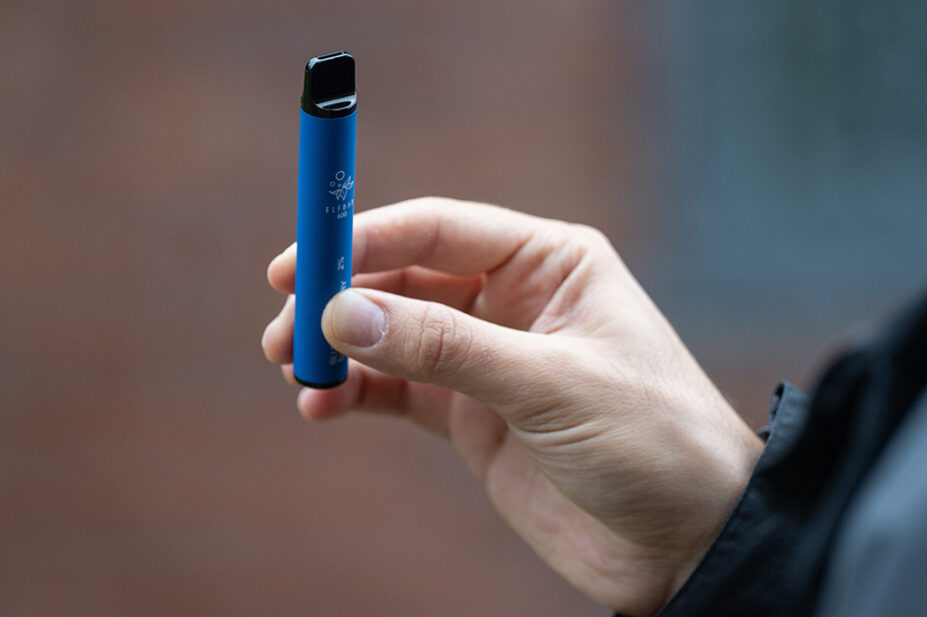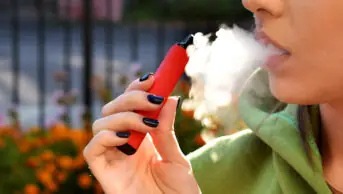
Shutterstock.com
Results from a Cochrane review have revealed that e-cigarettes, varenicline and cytisine were found to be most effective in helping people quit smoking at six months or longer, with no clear differences in effectiveness between the three.
Researchers reviewed 319 randomised controlled trials, published between April 2012 and April 2022, which included data from more than 150,000 participants. The majority of the studies were conducted in the United States or Europe.
The meta-analysis, published on 12 September 2023, compared the effectiveness of smoking cessation treatments, tolerability, and potential to cause serious harm.
The review revealed that 10–19% of people were likely to quit smoking using an e-cigarette, 12–16% using varenicline and 10–18% using cytisine. There were no clear differences in serious adverse events between the three treatments.
Other treatment options included nicotine replace therapy (NRT) and antidepressants bupropion and nortriptyline. The data showed that combination NRT had similar efficacy to e-cigarettes, varenicline and cytisine, followed by bupropion, nortriptyline and single-form NRT.
In their analysis, the study authors raised the need for direct comparisons focusing on the harm and tolerability of the four most effective treatment options — e-cigarettes, varenicline, bupropion and combination NRT — to aid clinical decision-making.
Commenting on the review, Jon Foster, policy manager at Asthma and Lung UK, said: “Vaping can be a helpful way to give up smoking.
“There is really clear evidence that swapping tobacco for vaping leads to a substantial reduction in exposure to substances that can cause cancer, lung disease and heart disease.
“However, if you don’t smoke, starting to vape isn’t a good idea, especially if you have a lung condition. More research is needed on how long-term vaping can affect the lungs and overall health,” he added.
In October 2021, varenicline was recalled by its manufacturer owing to the presence of unacceptable levels of nitrosamine, a probable human carcinogen. This was followed by a hold on the batch release and distribution of bupropion in November 2022.
Cytisine is currently unavailable in the UK and nortriptyline is licensed for smoking cessation in New Zealand only.
At present, NRT remains the only licensed medicine available for smoking cessation in the UK.
Also commenting on the review, Deborah Arnott, chief executive of Action on Smoking and Health, said: “E-cigarettes are the best option for smokers wanting help to quit.
“Not only are they as effective as varenicline and cytisine, but more to the point, they’re widely available and cheap,” she said.
“The government has promised 1 million free vapes to smoking cessation services and while the scheme’s not yet up and running, there’s no need for stop smoking services to wait.”
In April 2023, the government announced a world-first national ‘Swap to stop’ scheme, which aimed to offer 1 million vape starter kits and behavioural support to smokers in England, with the aim of encouraging them to swap cigarettes for e-cigarettes.
Despite the effectiveness of e-cigarettes, Darush Attar-Zadeh, an independent prescriber and clinical fellow respiratory pharmacist at North West London Integrated Care Board, expressed concern.
“E-cigarettes haven’t gone through the same rigorous safety tests (clinical trials) as licensed medicines,” he said.
“I think combination NRT should be offered as an equal first-line option.”
2 comments
You must be logged in to post a comment.



Very sorry to learn that only 10-19% of smokers quit with vaping at 6 months. There is another important issue: having stopped smoking, do the ex-smokers continue to vape, and for how long. My anecdotal observation in community pharmacy practice in the 1990's, was that those prescribed NRT in forms that gave a substantial nicotine "hit" were more likely to continue using it long-term than those with "drip feed" NRT like shin patches. Nicotine itself is not harmless and is very addictive.
In other words, people seemed more likely to remain addicted to the "nicotine hit" formulations in the long term than the "drip feed" ones